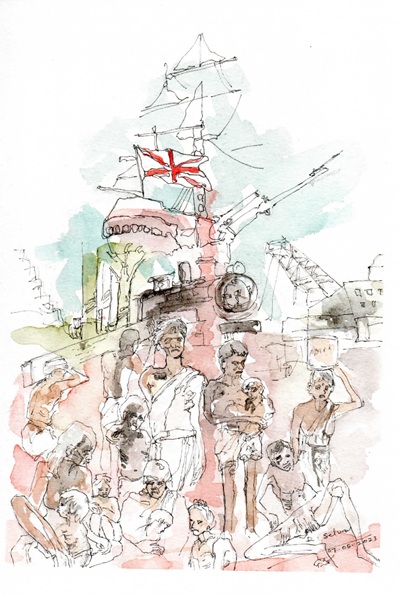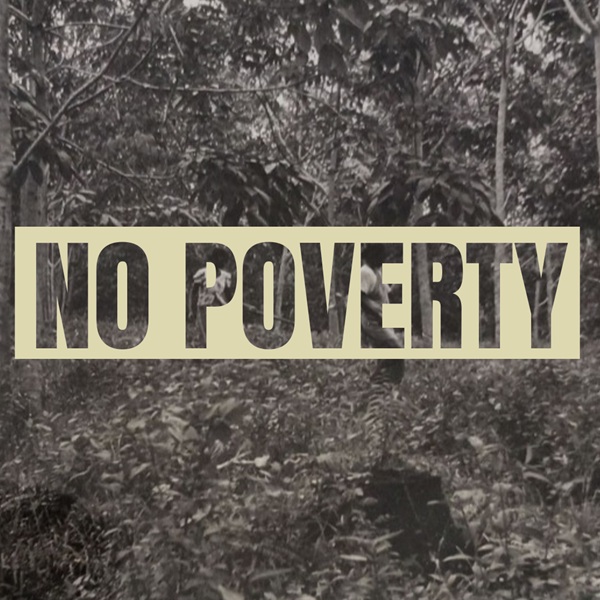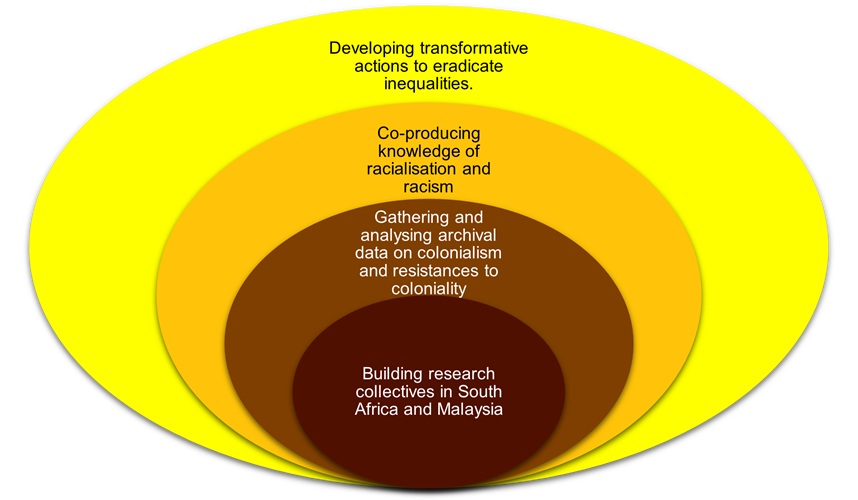Building Global South-South solidarities to redress inequities (BUSSIN)
In this transdisciplinary research challenge, we focus on understanding the impact of British coloniality on racism and marginalization in South Africa, Malaysia and Brazil.

Aims
- Contribute a deeper, decolonial understanding of racism by focusing on global South accounts of coloniality and decoloniality.
- Develop transformative action to arrest the spread of precarity, racial capitalism and anti-Black racism forged through colonisation and the creation of indentured labourers in South Africa and Malaysia.
- Imagine free-er futures for marginalised communities, with marginalised community members, by not only bearing witness as a social psychological method (Fine, 2006) but also recognising that precarity often leaves marginalised peoples without the time-space for future orientations (Reddy & Amer, 2023; Schmitt et al., 2023).
- Focus on increased recognition of the strength of South-South solidarities as a map for liberation.
The project will utilise elements of critical participatory action research (CPAR) methodology to enliven discussions on and to recognise acts of resistance to coloniality in South Africa, Brazil and Malaysia.
Why CPAR methodology?
Mainstream psychology takes an ethnocentric perspective even when understanding the thoughts, feelings, and behaviours of people living in communities in different sociocultural, political, and historical contexts but it does not account for its ethnocentrism. This zero-point epistemology that conceals the geo-historical and bio-graphical location of its knowledge creates the figure of a detached observer and furthers the idea of universal knowledge (Mignolo, 2009). One of the ways this is visible is when theories developed under the purvey of Western psychology are taken as universally applicable to the entire human population.
Similarly, social science, which is often colonial, formulates interventionist research that is often built upon individualized understandings of research ethics (Tuck & Yang, 2014). In contrast, a key aspect of CPAR is transformative action in society at large. Advocates for greater inclusion in the social sciences have pushed for a diversity of empirical research studies. However, the move to un-WEIRD (Henrich et al., 2010) psychology has led to more research done on, and not with, marginalised peoples. This project will contribute to the eradication of racism and precarity that plague marginalised peoples by centering their experiences and their development of solutions.
Funding
The project is Funded by Open Societal Challenge (OSC) by The Open University. Dr Geetha Reddy’s OSC Vision is to support the strengthening of solidarities between Global South communities who are experiencing increasing levels of violence and marginalisation, anti-Black racism, and precarity forged through colonisation and the creation of indentured labourers.

This is a 10-year vision, which will use successful external grant capture (in succession) to build and work with a network of academics, artists, activists, policymakers, and other key stakeholders to eradicate various inequalities within various Global South communities.
OSC funds awarded in 2022-2024 facilitated the successful award of the British Academy International Interdisciplinary Grant (£295,771.63) to carry out the EXCAPE URMI project.
OSC funds awarded in 2022-2024 facilitated the successful award of the British Academy International Interdisciplinary Grant (£295,771.63) to carry out the EXCAPE URMI project.
Using what is known about the coloniality of knowledge production within Western, Global North institutions (Reddy & Amer, 2023) the focus of the OSC project will be to develop sustainable partnerships with Global South institutions such as universities, policy think tanks, archives, and museums.
To achieve this vision, the long term changes that are essential include:
- Increasing consciousness of the coloniality of knowledge production embedded in tackling inequalities, specifically within psychology but with the vision that its utility can be applied to the social sciences more broadly.
- Challenging interventionist approaches to tackling inequalities that continue to reinscribe colonial power relations in contemporary solutions.
- Increasing the recognition of the strength of South-South solidarities as a map for liberation.
This project aligns with the ODA’s promotion of “ending poverty and leaving no one behind”.
Despite absolute poverty enduring among vulnerable and marginalised groups, the Sustainable Development Goals Investor Map states that Malaysia has only received 0.002% of net ODA (United Nations Development Programme, 2023). Exacerbated by the COVID-19 pandemic, structural challenges have undermined efforts to reduce poverty in South Africa (The World Bank, 2023). Furthermore, ODA funding to Brazil, typically funds water and sanitation, agriculture, and infrastructure (Development Initiatives, 2024), rather than understanding the antecedents of poverty today in the country. The project applies a social psychological theorising of precarity (Coultas et al, 2023) to understand how the poverty that was embedded in historical creation of indentured labourers in South Africa and Malaysia and slavery in Brazil is persistent in the spread of precarity today.
Research Output and Knowledge Exchange
The larger project is organised in four stages that will overlap.

Openness of research
A transdisciplinary, global perspective is used in understanding how intractable, intersectional, multi-scalar problems, like racism and its consequences, still persist in today’s world. This project engages with insights from human geography, critical migration studies, feminist studies and history. The findings of this research will be shared in accessible academic and non-academic spaces such as open-access journals and online webinars.